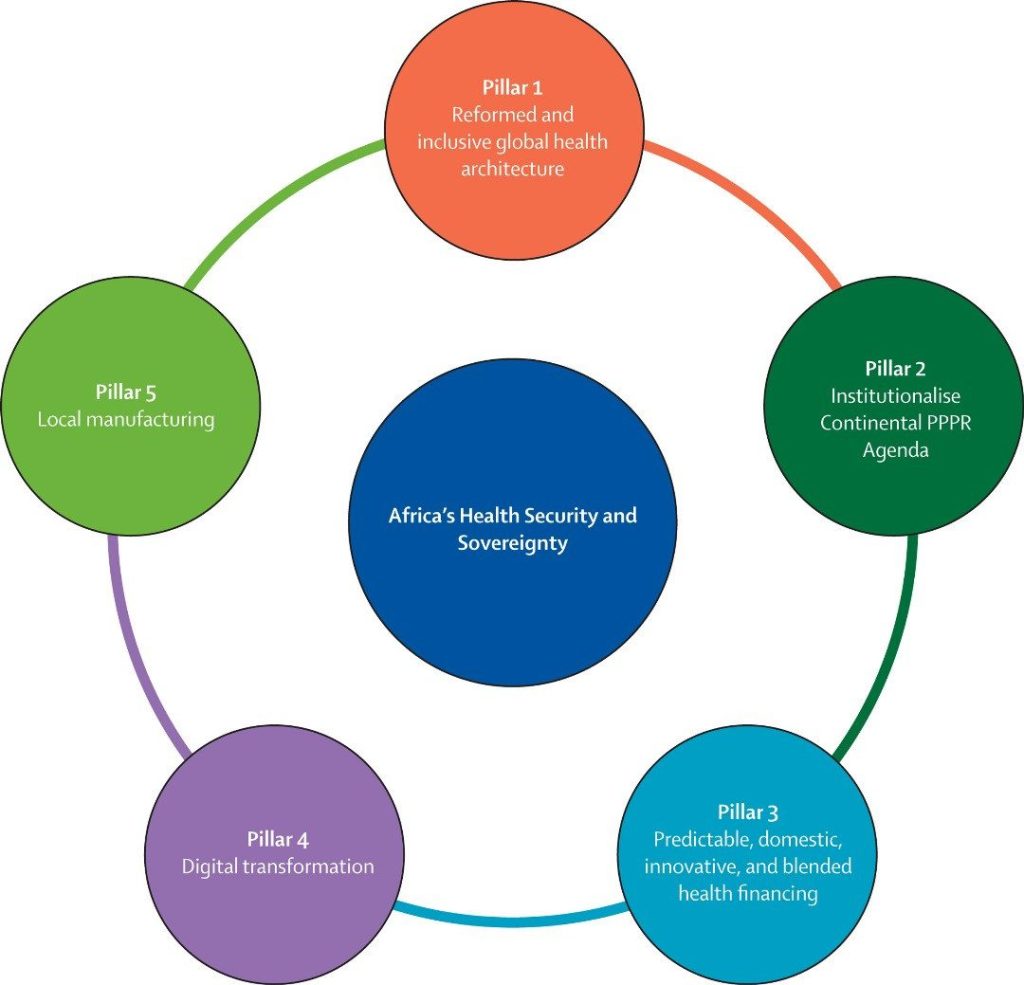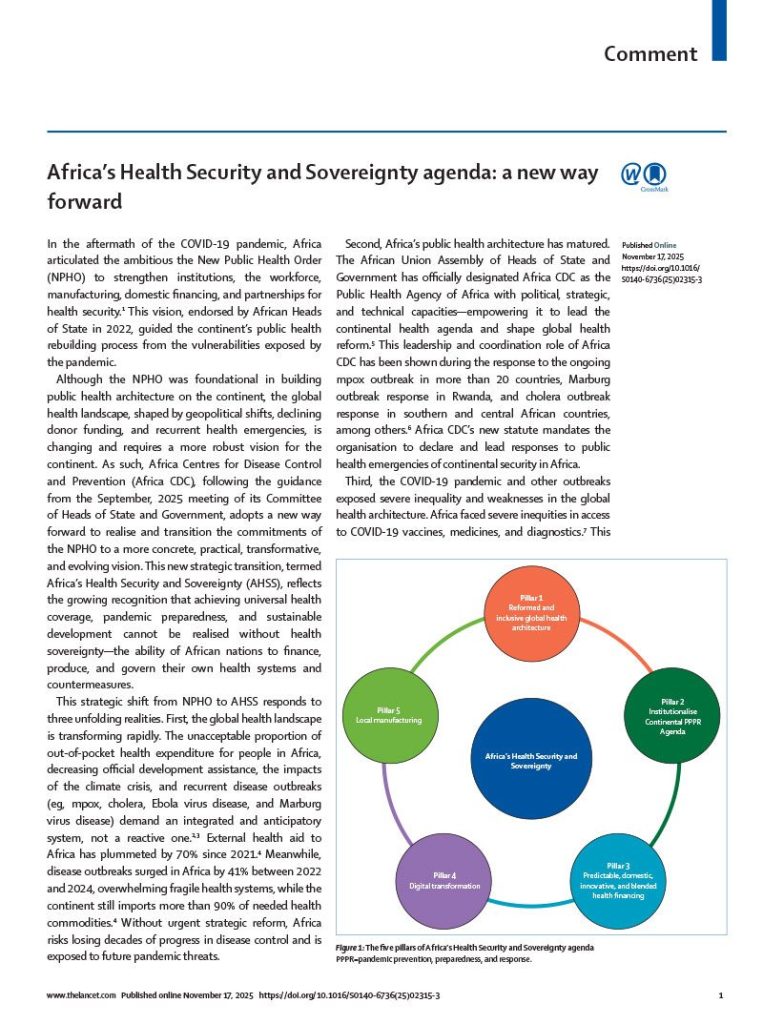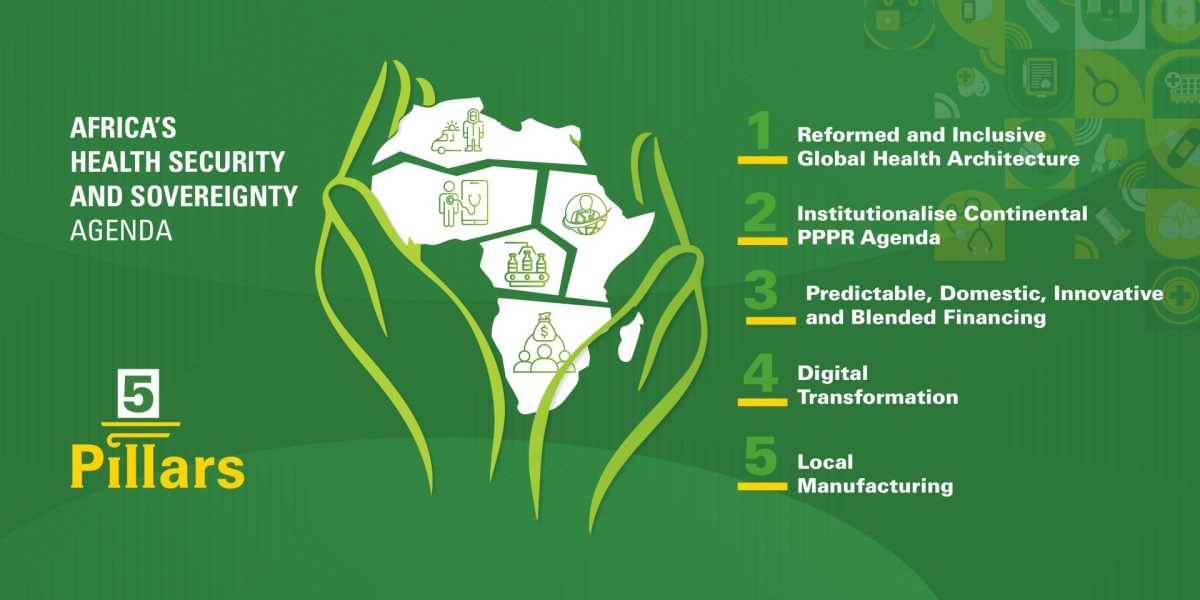Africa CDC is ushering in the next chapter of Africa’s health transformation.
The New Public Health Order strengthened the continent’s institutions, expanded the health workforce, advanced local manufacturing, and deepened partnerships. But today’s realities demand even more: donor funding is declining, outbreaks have increased by 41% in two years, and over 90% of health commodities are still imported.
The Africa Health Security and Sovereignty (AHSS) Agenda responds to this moment. It provides a practical and transformative framework to ensure African nations can finance, produce, and govern their own health systems and medical countermeasures.
AHSS is Africa’s path from dependence to autonomy, and from vulnerability to true preparedness.

-
Pillar 1 — Reformed & inclusive global health architecture
Ensuring Africa has a stronger voice and influence in global decision-making and governance. -
Pillar 2 — Institutionalised continental PPPR agenda
Embedding Preparedness, Prevention, and Response (PPPR) into systems and institutions to detect and respond to threats faster. -
Pillar 3 — Predictable, domestic, innovative, blended financing
Securing sustainable African-led investment for essential health services and health security. -
Pillar 4 — Digital transformation
Building a Digital Intelligence Ecosystem that enables real-time data flows from communities to national and continental platforms. -
Pillar 5 — Local manufacturing
Expanding Africa’s ability to produce vaccines, diagnostics, therapeutics, and essential supplies to reduce dependency on imports

Africa’s Health Security and Sovereignty agenda: A new wayforward
In the aftermath of the COVID-19 pandemic, Africa articulated the ambitious the New Public Health Order (NPHO) to strengthen institutions, the workforce, manufacturing, domestic financing, and partnerships for health security. This vision, endorsed by African Heads of State in 2022, guided the continent’s public health rebuilding process from the vulnerabilities exposed by the pandemic.

